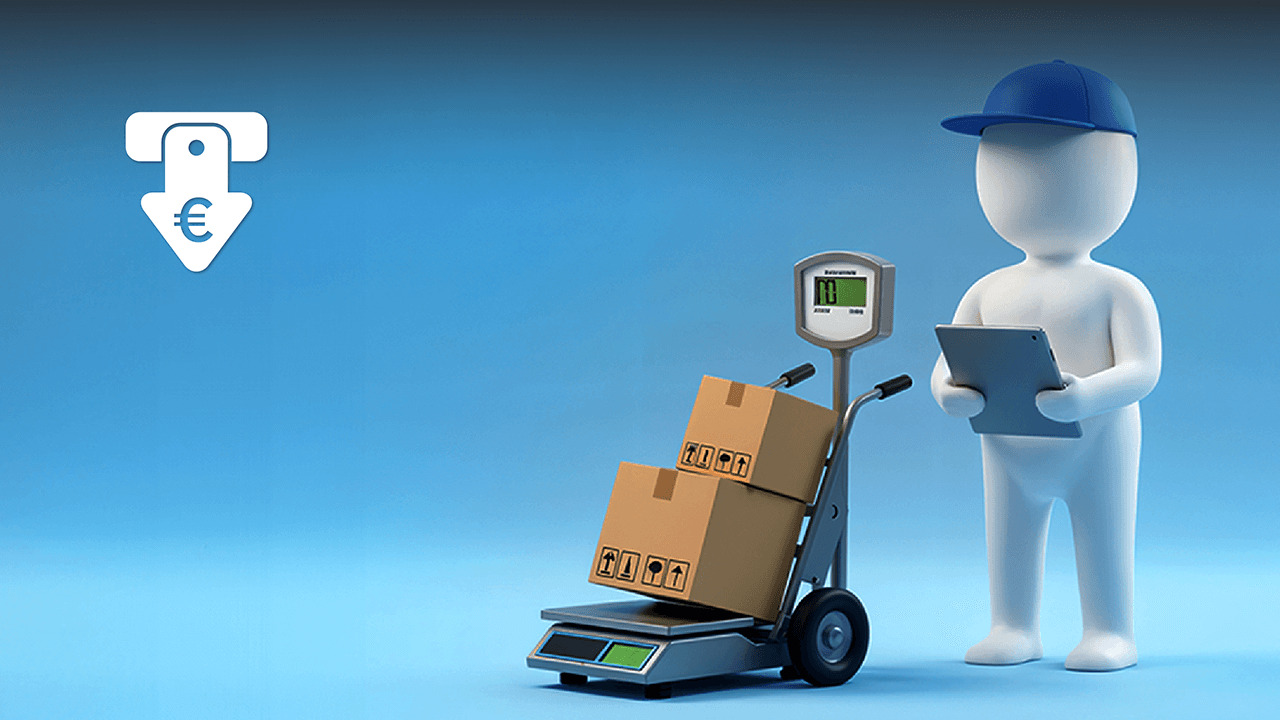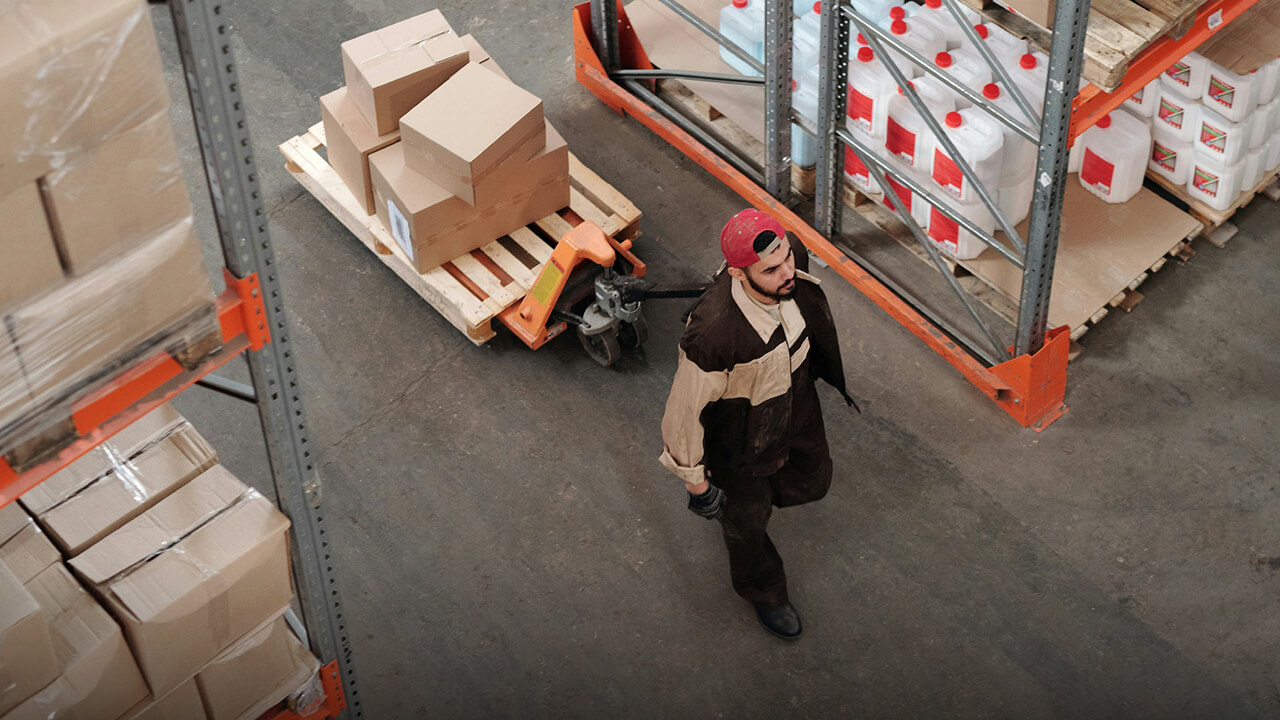Integrating scales in logistics: The key to accuracy and efficiency

5 min read
Accuracy and speed are key in modern supply chains. For logistics companies, every detail counts. By integrating a scale at critical points in the warehouse in combination with the use of a warehouse management system (WMS), a company can achieve effective automation and cost reduction. But how exactly does the integration of scales contribute to improving processes? Where can it be applied and what are the tangible benefits for the company?
What is the integration of scales in warehouse management?
Industrial scales are measuring tools used in warehouses, laboratories and industrial applications. They facilitate various processes related to production, storage, packaging and transportation. By accurately determining the weight of products, these tools allow for thorough inventory control, especially in coordination with a WMS system. They are designed to weigh large volumes and heavy materials beyond the capacity of standard scales.
The different types of warehouse scales
Depending on their design, scales can be electronic, mechanical or electromechanical (hybrid). These are the most common industrial scales:
-
Pallet warehouse scale or pallet truck scale
It has a built-in weighing system that measures the weight of the load in real time during transport.
-
Platform scale or industrial floor scale
It is widely used for weighing during receiving, storage and shipping processes. It can include ramps and accessories to streamline operations.
-
Weighing rods
They consist of two separate rods that can be adjusted to different distances to adapt to different sizes of loads and calculate their weight.
-
Crane scale
Records the weight of large suspended loads.
-
Forklift Scale
It is a hanging scale that is equipped on a forklift for weighing loads.
Similarly, truck scales play a crucial role in transportation and logistics, checking whether a vehicle exceeds legal weight limits or whether it can travel safely.
How will integrating scales into your warehouse help your business?
Scales play an integral role in optimizing logistics operations, contributing to everything from accurate pricing of goods to ensuring regulatory compliance, offering many benefits to businesses!
Provide Accuracy in Freight Pricing
One of the most immediate benefits of using scales in logistics is the accuracy they offer in freight pricing. Every gram counts, literally, so accurate weight measurements can make a significant difference in the final cost of transportation. Overestimating the weight of a shipment can lead to unnecessary expenses for both the sender and the recipient, while underestimating it can lead to disputes and potentially lost revenue for logistics providers.
By using scales, logistics companies can ensure that they are charging customers based on the actual weight of the goods. This accuracy not only improves transparency and trust between businesses and their customers, but also helps maintain competitive prices, ultimately contributing to customer satisfaction and retention.
Optimizes resource allocation
Effective logistics management is based on the correct allocation of available resources, such as transportation, warehouse space and human resources. If there is no accurate data on the weight of the loads, problems such as overloading or poor utilization of vehicles, wasting warehouse space or unnecessary employment of personnel are likely to arise, all of which lead to increased costs.
The use of scales enables businesses to make better decisions. For example, when they know the exact weight of a load, they can choose the most appropriate means of transport and make the most of the available space, without exceeding the permissible limits. This results in greater efficiency and reduced costs.
Adhere to regulations and safety standards
The logistics industry operates within a framework of regulations and safety standards designed to protect both the goods being transported and the people involved in the process. Weight regulations are a critical aspect of these standards, ensuring that vehicles on the road do not pose an undue risk to infrastructure and public safety.
Scales play a crucial role in ensuring compliance with weight-related regulations. By accurately measuring the weight of cargo and vehicles, logistics companies can avoid fines, penalties, and delays resulting from violations. In addition, adhering to weight limits enhances road safety by reducing wear and tear on infrastructure, reducing the risk of accidents caused by overloaded vehicles, and improving overall traffic flow.
Inventory management and demand forecasting become easier
Proper inventory management is crucial to the success of logistics operations. Scales play an important role in this, as they offer accurate measurements of incoming and outgoing products. This data allows for real-time inventory monitoring, helping businesses maintain appropriate levels, with neither shortages nor oversupply.
At the same time, weight can act as an indicator for demand forecasting. By analyzing changes in the total weight of shipments over time, logistics managers can identify seasonal trends and predict which products will have increased demand. In this way, they adjust inventory and chain management in a timely manner, reducing losses and ensuring higher customer satisfaction.
Reducing the environmental footprint
In a world where sustainable practices are increasingly important for businesses, everyone aims to reduce their emissions and environmental footprint. Accurate weight measurements play a key role in this direction, as they help optimize loading and transportation routes. This reduces the number of routes, reduces fuel consumption and overall carbon dioxide emissions.
By using scales, businesses can plan smarter shipments, combining loads, choosing more efficient means of transport and avoiding unnecessary travel. In addition to reducing costs, this approach promotes a greener, more responsible and sustainable operation, something that customers themselves are now demanding.
Integrating scales into your warehouse and logistics processes is not just a technological upgrade, but a strategic investment in accuracy, efficiency and sustainability. From better resource utilization to cost savings and regulatory compliance, the benefits are tangible and measurable. If you want your business to gain a competitive advantage in a competitive market, then integrating weighing systems will help you achieve it!
